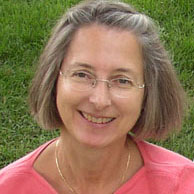Millions of Christians have sought God’s forgiveness with these words from the Book of Common Prayer: “We confess that we have sinned against you in thought, word, and deed, by what we have done, and by what we have left undone.”
Perhaps it is time that we ask our children to forgive us for what we have done.
Whenever people burn fossil fuels, we increase greenhouse gases that trap too much heat in our atmosphere. Up to a point in our history, we were unaware that our ever-growing dependence on oil and coal would result in disastrous global warming, but now we know what we have done.

In 1988 then-NASA climate scientist James Hansen warned the U.S. Senate that humans had already altered our climate in a manner that would affect life on Earth for centuries. He made dire predictions of the consequences of continued reliance on fossil fuels, predictions that have unfortunately turned out to be quite accurate.
You could say that my generation was the first to be able to foresee the consequence of our actions, and now we have the last chance to forestall climate disaster.
In order to avoid global catastrophe, global net human-caused emissions of carbon dioxide would need to fall by about 45 percent from 2010 levels by 2030. The October 2018 report of the Intergovernmental Panel on Climate Change (IPCC) told us that limiting global warming to 1.5°C would require rapid, far-reaching and unprecedented changes in all aspects of society.
We have just 12 years to accomplish what we have so far left undone, yet older people like me tend to be complacent because we will not live to experience the worst effects of climate destabilization.
According to a March 2019 Gallup poll, only 47 percent of Americans 65 or older are concerned about global warming vs. 67 percent of those aged 18 to 29. No wonder our children are now leading the call for action. They are more motivated—and far more powerful—than we can ever be.
When a youthful climate activist like 16-year old Greta Thunberg of Sweden asks, “Why should we study for a future that may not exist any more?” it’s tough for world leaders to look those students in the eye and refuse to change.
When Utah college freshman Piper Christian reflects on the human race’s dependence on oil, natural gas and coal, she puts it like this. “My generation is the child of an addict. We were born on a collision course constructed by our forefathers. And while you have promised us time and time again that you will break your self-destructive fossil fuel addiction, with each relapse your promises sound more hollow.”
The first step toward change is awareness of the damage we have caused. Forgive us, Greta and Piper, for what we have done and what we have left undone.
According to Christian tradition, the next step is to repent. Repentance implies that if you see that your action—or inaction—causes harm, then stop. Admit your mistake. Change course.
Our present path is full of peril for our children, and I believe people of faith have a special obligation to pursue a new path. On Sept. 20 in Madison, Wisc., faith communities will join area youth as they walk out of school. The children of the world have asked adults in every country to step up alongside them in a worldwide strike for the climate.
Let’s cooperate with our children as they ask responsible adults to build a clean energy economy and preserve a planet filled with possibility instead of peril.
Carrie Scherpelz is a marketing communications professional and member of a Madison, Wisconsin faith community.
“The Invading Sea” is a collaboration of four South Florida media organizations — the South Florida Sun Sentinel, Miami Herald, Palm Beach Post and WLRN Public Media.



